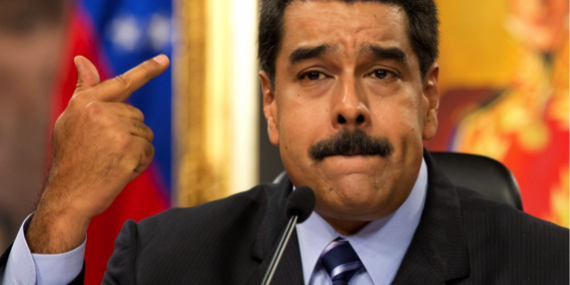Venezuelan bonds are riding a high as the PDVSA skirted default in late October. The state-owned oil company’s $3bn bond maturing in April 2017 is trading at a two-year high of 87 cents on the dollar, up from a record low of 36 cents in February. Many bondholders believe that Venezuela is a good short-term bet, despite the country’s financial woes. With the world’s biggest oil reserves, its solvency is almost guaranteed. It also boasts the highest yield in emerging markets, with investors who bought a PDVSA bond maturing in April 2017 achieving a 70% profit.
However, the swap is only a short-term relief. It has not eliminated the possibility of PDVSA defaulting in the near future, and it would be prudent for investors to “keep an eye on the willingness and capacity of the Venezuelan government to continue servicing its debts”, says Mr. Daniel Urdaneta, a strategist at Knossos Asset Management, an investment management firm specialising in Venezuelan assets. The Maduro government has so far shown its commitment to servicing its debt, even at the expense of its own people’s livelihood. But their ability to pay is not fully within their control. “I believe the recent debt swap was positive for PDVSA’s chances of muddling through 2017 without a credit event, but that is still contingent on oil prices trading at or above current levels”, adds Mr. Urdaneta.
The Venezuelan government is walking on thin ice. As it struggles to continue servicing its loans to international bondholders, its people starve at home. Food shortages, riots and inflation are rampant. The swap does not achieve much beyond buying the Venezuelan government time, given its continued mismanagement of the economy. Within PDVSA, a 20% drop in oil production has been attributed to mismanagement. The Venezuelan government’s capacity to pay is not a foregone conclusion, even with the swap, given that there remains a continued gap in external accounts and limited funding sources available to PDVSA.
As the social and political pressure builds, the opposition has been able to win over support that could potentially lead to regime change. There should be due consideration that the government might actually collapse before it defaults. People have turned against Maduro’s administration; poll indicating that Venezuelans believe the country is mismanaged. Basic needs like food and medicine are in severe shortage as the country battles triple-digit inflation at 476%. It is ripe for political crisis. The opposition, with strong overseas backing and increasing popularity on the ground, has potential to gain important ground. In the meantime there will likely be increased state repression and greater social unrest.
So far, Venezuela’s economy has been largely shielded from developments elsewhere the world. The economy has been relatively untouched by the impact of Trump’s election or Brexit, compared with other countries in the region. It remains vulnerable to macro drivers, like the dollar, but domestic instability and oil price movements are the more dominant force in Venezuelan economy. “Domestic political drivers are much more important than foreign political drivers in my opinion… due to the stance of both the government and the opposition, which favour self-determination and a conflict resolution that is led domestically”, says Mr Urdaneta. All eyes are now fixated on the Vatican-mediated dialogue between Maduro and opposition leaders.
But with Trump’s direct stance on the oil and gas industry, there might be more to the story. Two countervailing forces now exist with opposing trajectories. As OPEC struggles to reach a deal that could lead to production cuts, Trump’s intent to deregulate the oil industry could threaten demand for PDVSA’s oil in the US. It is a possibility that the US will cut off its imports of Venezuelan oil, which currently stand at 715,000 b/d, according to the US’ Energy Information Administration. In addition, various shale oil fields in the Permian Basin in West Texas compete directly with Venezuelan oil deposits, and its deregulation could mean reduced US demand for PDVSA.
US disengagement from the Venezuelan crisis, especially in light of the Trump victory, may serve to reinforce Venezuela’s shift away from the US and towards greater Chinese and Russian influence in the region. This might also mean greater recourse to funds and political backing for the Maduro administration, which has deliberately been increasing the share of exports to India and China. Trump’s election may reduce Venezuelan exports to the US, but it will not be too much cause for worry.
As for which bond is most attractive now, Mr. Urdaneta believes it is the new PDVSA 8.5% 2020 bond that has the most value in the curve, followed by the bonds due in 2017. “The PDVSA 2020s amortize a fourth in October 2017 but more importantly, they are senior to the rest of the curve and got a 1st lien against 50.1% of the equity of Citgo Holding, which is arguably the most valuable external asset of PDVSA”. In fact, Mr. Urdaneta further adds that “a strengthening of the Maduro administration is positive for the short end of the curve and negative for the rest of the bonds; and a strengthening of the opposition spurs regime-change bets, where the long end of the curve outperforms”.
Venezuela offers a very interesting but difficult investment environment and continues to be a challenge for long-term investors. Things have taken an interesting turn recently, as the various opposition groups and Maduro clash directly, while people on the ground reconsider their loyalties.
Written for EMF Latin America report, published in November 2016






